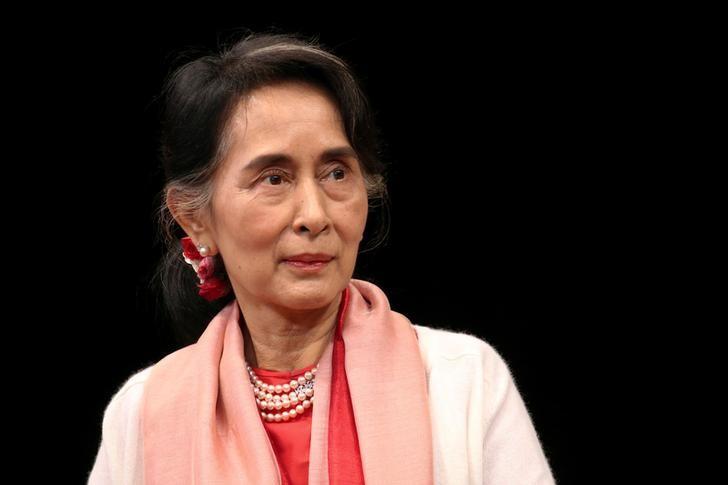EU drops Myanmar rights resolution, citing progress under Suu Kyi
The European Union praised Myanmar's progress on human rights under the leadership of Aung San Suu Kyi on Friday and said that it would not be introducing a resolution at the United Nations condemning the country's record for the first time in 15 years.
Addressing the Partnership Group on Myanmar at the United Nations General Assembly, EU Foreign Policy chief Federica Mogherini called Suu Kyi's progress from political prisoner to government "powerful testimony to the incredible change Myanmar is going through."
"The government has taken bold measures to improve human rights and re-invigorate the peace process. Political prisoners have been released," she said.
Mogherini said steps had also "been taken against those who incite hatred" and a commission established under former UN Secretary General Kofi Annan to address violence between majority Buddhists and Muslim Rohingyas in Myanmar's state of Rakhine.
In recognition of the progress, for the first time in fifteen years, the European Union would not table a human rights resolution on Myanmar at the UN assembly, she said.
Addressing Suu Kyi, Mogherini said: "Fifteen years is the measure of the incredible distance Myanmar has walked, the measure of how much your country has changed."
Mogherini said the European Union understood the "complexity" of the situation in Rakhine and told Suu Kyi: "I know that you area working hard to find a sustainable solution for both communities."
Suu Kyi has been criticized for doing too little to address the plight of the Rohingya Muslims.
In her first address to the General Assembly as national leader on Wednesday, she defended her government's efforts to resolve the crisis there and asked for "understanding" and "the constructive contribution" of other countries.
She said the government would persevere in its efforts to achieve peace in Rakhine and stand firm "against the forces of prejudice and intolerance."
The US ambassador to the United Nations, Samantha Power, told the same session that Suu Kyi's commitment to stand firm against intolerance and her pledge in Washington last week that all those entitled to citizenship would be granted it were "powerful and important."
However, she and UN Secretary-General Ban Ki-moon said significant problems remained and both reiterated calls for the government to allow the establishment of an office of the UN High Commission for Human Rights with a full mandate.
Increased freedom of speech since the military stepped back from direct rule in Myanmar in 2011 has allowed for the unleashing of long-held anti-Muslim sentiment.
Around 125,000 Rohingya remain confined in temporary camps after waves of deadly violence in 2012 between Buddhists and Muslims, when more than 100 people were killed.
The Rohingya have been seen by much of the Buddhist population as illegal immigrants from Bangladesh, even though many have lived in Myanmar for generations. Most were stripped of their ability to vote in last year's election, which brought Suu Kyi to power as de facto leader.






